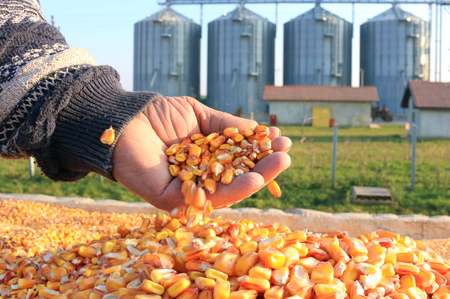South Asia Presents New Markets for U.S. Corn Co-Products
Category: Grains

(Global Milling) – Shifting trade patterns and growing feed markets are creating new export opportunities for U.S. corn co-products in the South Asian markets of Bangladesh and Sri Lanka, as representatives from the U.S. Grains Council (USGC) explored during a mission in September.
Both countries are currently importing small quantities of U.S. dried distiller’s grains with solubles (DDGS). During this assessment, Council staff members from the region and the United States were able to visit with importers and end-users to learn more about the constraints to and market potential for future sales of U.S. coarse grains and co-products.
“Both countries have imported U.S. DDGS but need additional technical education on using feed ingredients as well as how to address logistical concerns,” said Alejandra Danielson Castillo, USGC manager of global trade, who led the mission. “There is appetite in both countries for U.S. products for growing poultry and aquaculture industries, little-to-no regulatory constraints and a willingness to work with the United States.”
Bangladesh has imported nearly 135,000 metric tons of U.S. DDGS this marketing year, continuing a sharp upward growth curve over the last two marketing years, in addition to 5,000 tons of corn gluten feed/meal. Sri Lanka’s imports of U.S. DDGS increased 8.2 percent year-over-year to nearly 22,000 tons.
The feed industries in both countries continue to grow across livestock sectors – aquaculture, poultry, layers, broilers and dairy – as populations increase and incomes rise. Bangladesh, for example, is the most densely populated country in the world with 1,000 people per square kilometer, driving fish production and poultry sector expansion.
These regional changes signal a shift in opportunities for U.S. feed grain exporters. The compound feed industry in South Asia is becoming more organized and seeking higher-quality feed ingredients while looking toward U.S. imports to satisfy needs no longer fulfilled by domestic or regional producers. Bangladesh currently imports 70 percent of its feed ingredient needs from the world market, with imports expected to increase alongside demand. The United States is well positioned to be the country’s partner in fulfilling these needs.
“The South Asian market is simply too large to be ignored in developing export opportunities for U.S. coarse grains producers and exporters,” Danielson Castillo said. “The drive for improved diets and access to meat protein by a rapidly increasing population will also drive demand for feed ingredients for years to come.”
A lack of knowledge about logistics and poor port conditions are the most critical limits on market expansion. With no on-site storage available, the ports discharge directly onto trucks, creating significant bottlenecks for unloading operations and adding considerable demurrage. However, there is interest from individual feed millers in purchasing combination shipments of feed ingredients to store at their facilities in bulk bags.
“Bangladeshi and Sri Lankan importers and end-users both seem keen on using U.S. commodities and have expressed interest in combination shipments, purchasing groups and other strategies to allow them to take advantage of cost-savings and freight differentials,” Danielson Castillo said. “Working with both countries could allow the Council to create a U.S. advantage and establish value chains that would serve as examples of efficiencies and safety for other countries in the region.”
The Council invited an eight-member team representing key feed millers and grain importers from Bangladesh and Sri Lanka to participate in Export Exchange 2018 in Minneapolis later this month. Prior to the main conference, the team will participate in a related trade team visit to learn about U.S. corn and DDGS production, strengthen ties with U.S. grain exporters and learn how to procure commodities from the U.S. agricultural sector to feed their growing livestock industries.




